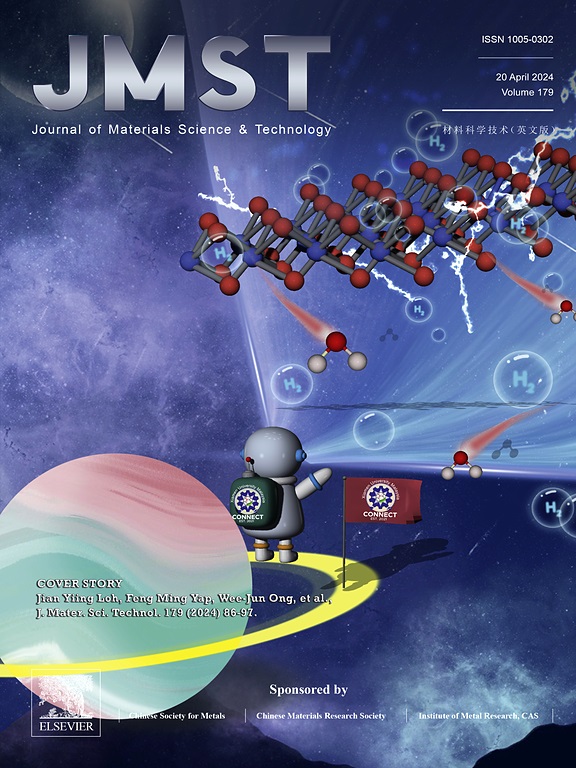Research progress in solid-state hydrogen storage alloys: A review
IF 11.2
1区 材料科学
Q1 MATERIALS SCIENCE, MULTIDISCIPLINARY
引用次数: 0
Abstract
Promoting the widespread utilization of hydrogen energy, supported by efficient storage and conversion technologies, represents a pivotal strategy for addressing global energy and environmental challenges. Among these technologies, the development of compact, safe, and economically viable hydrogen storage (abbreviated as H-storage) solutions is essential for advancing a hydrogen-based economy. Conventional technologies, such as compressed gaseous hydrogen and cryogenic liquid hydrogen, face limitations including safety concerns, high energy consumption, and significant evaporation losses. In comparison, metal hydride-based storage offers a promising alternative by enabling hydrogen to form stable compounds with metals under moderate conditions, thereby improving safety and hydrogen density (H-density). The review provides a comprehensive analysis of recent advances in the most appealing solid-state hydrogen storage alloys (HSAs), with a focus on their de-/hydrogenation properties and cycling stability. Key materials discussed include V-based body-centered cubic (BCC) HSAs, Mg-based crystalline and amorphous HSAs, and multi-component alloys—either employed as used as standalone H-storage materials or as multifunctional catalysts to improve hydrogen kinetics of Mg-based materials. The review begins by examining synthesis methods for HSAs. Afterwards, the review summarizes and discusses the H-storage properties of the above HSAs, with a particular emphasis on their de-/hydriding kinetics, thermodynamics, and cycling performance. In addition to highlighting the latest advancements of solid-state HSAs in the field of hydrogen energy, the remaining challenges and prospects of the emerging research are also discussed.

固态储氢合金的研究进展
在高效储存和转换技术的支持下,促进氢能的广泛利用,是应对全球能源和环境挑战的关键战略。在这些技术中,开发紧凑、安全、经济可行的氢储存(简称H-storage)解决方案对于推进氢经济至关重要。传统技术,如压缩气态氢和低温液氢,面临着安全问题、高能耗和重大蒸发损失等限制。相比之下,基于金属氢化物的存储提供了一个很有前途的选择,它使氢在中等条件下与金属形成稳定的化合物,从而提高安全性和氢密度(H-density)。本文对固态储氢合金(HSAs)的最新进展进行了全面分析,重点介绍了它们的脱氢化性能和循环稳定性。讨论的关键材料包括v基体心立方(BCC) HSAs,镁基晶体和非晶HSAs,以及多组分合金,这些材料要么用作独立的储氢材料,要么用作改善镁基材料氢动力学的多功能催化剂。本文首先综述了HSAs的合成方法。然后,综述和讨论了上述HSAs的储氢性能,特别强调了它们的脱氢/氢化动力学、热力学和循环性能。除了重点介绍固态HSAs在氢能领域的最新进展外,还讨论了新兴研究中存在的挑战和前景。
本文章由计算机程序翻译,如有差异,请以英文原文为准。
求助全文
约1分钟内获得全文
求助全文
来源期刊

Journal of Materials Science & Technology
工程技术-材料科学:综合
CiteScore
20.00
自引率
11.00%
发文量
995
审稿时长
13 days
期刊介绍:
Journal of Materials Science & Technology strives to promote global collaboration in the field of materials science and technology. It primarily publishes original research papers, invited review articles, letters, research notes, and summaries of scientific achievements. The journal covers a wide range of materials science and technology topics, including metallic materials, inorganic nonmetallic materials, and composite materials.
 求助内容:
求助内容: 应助结果提醒方式:
应助结果提醒方式:


